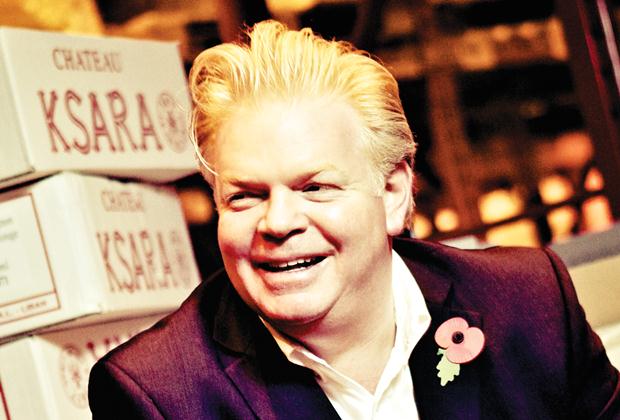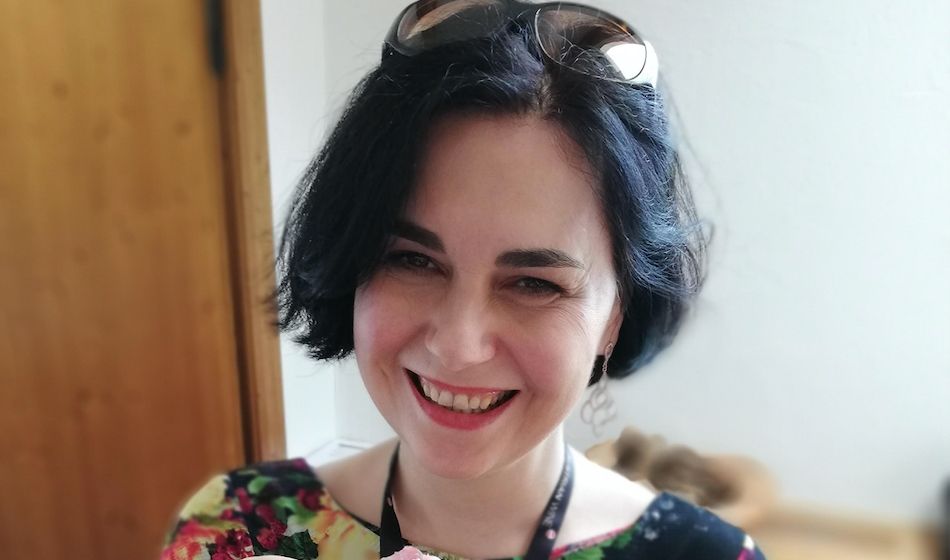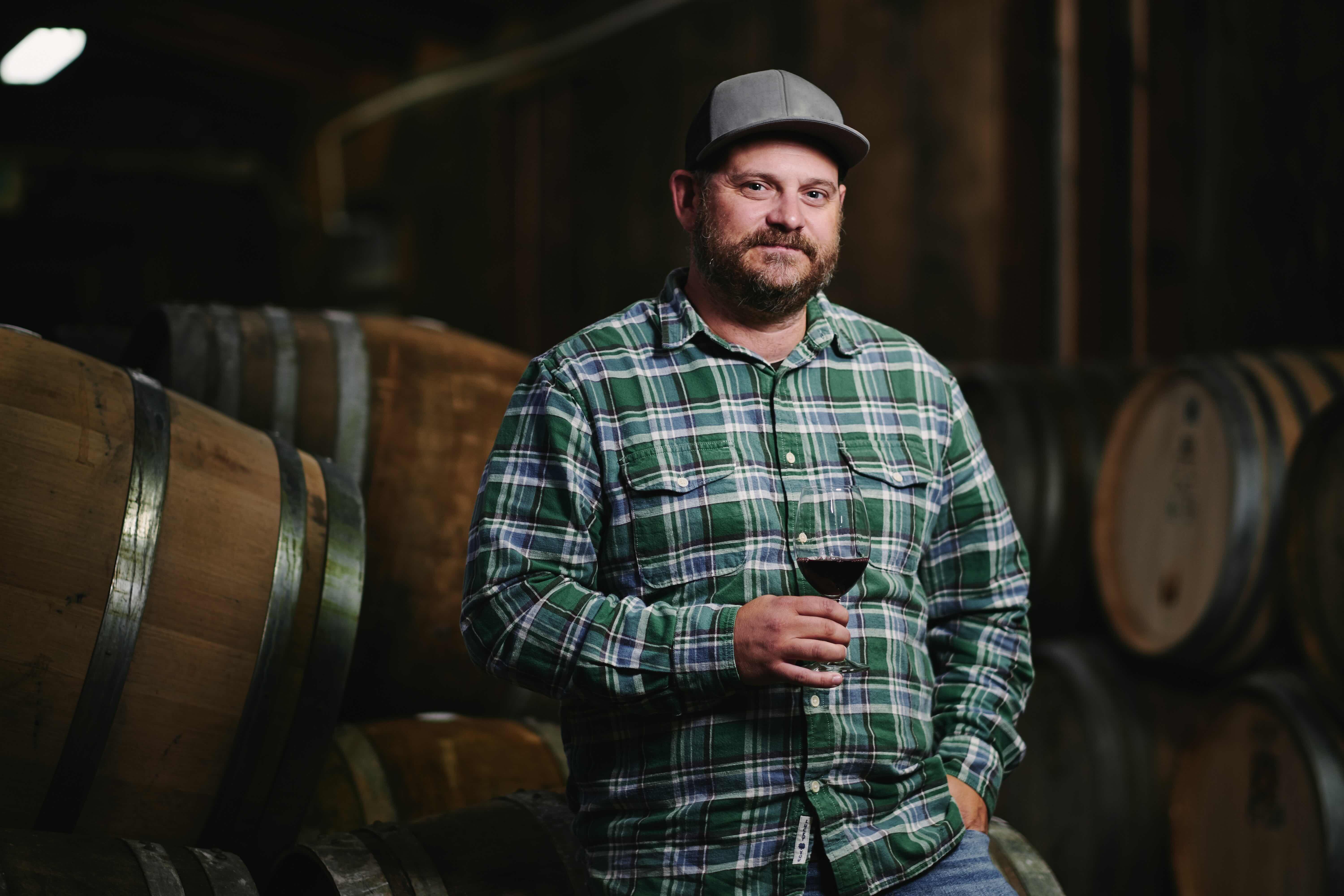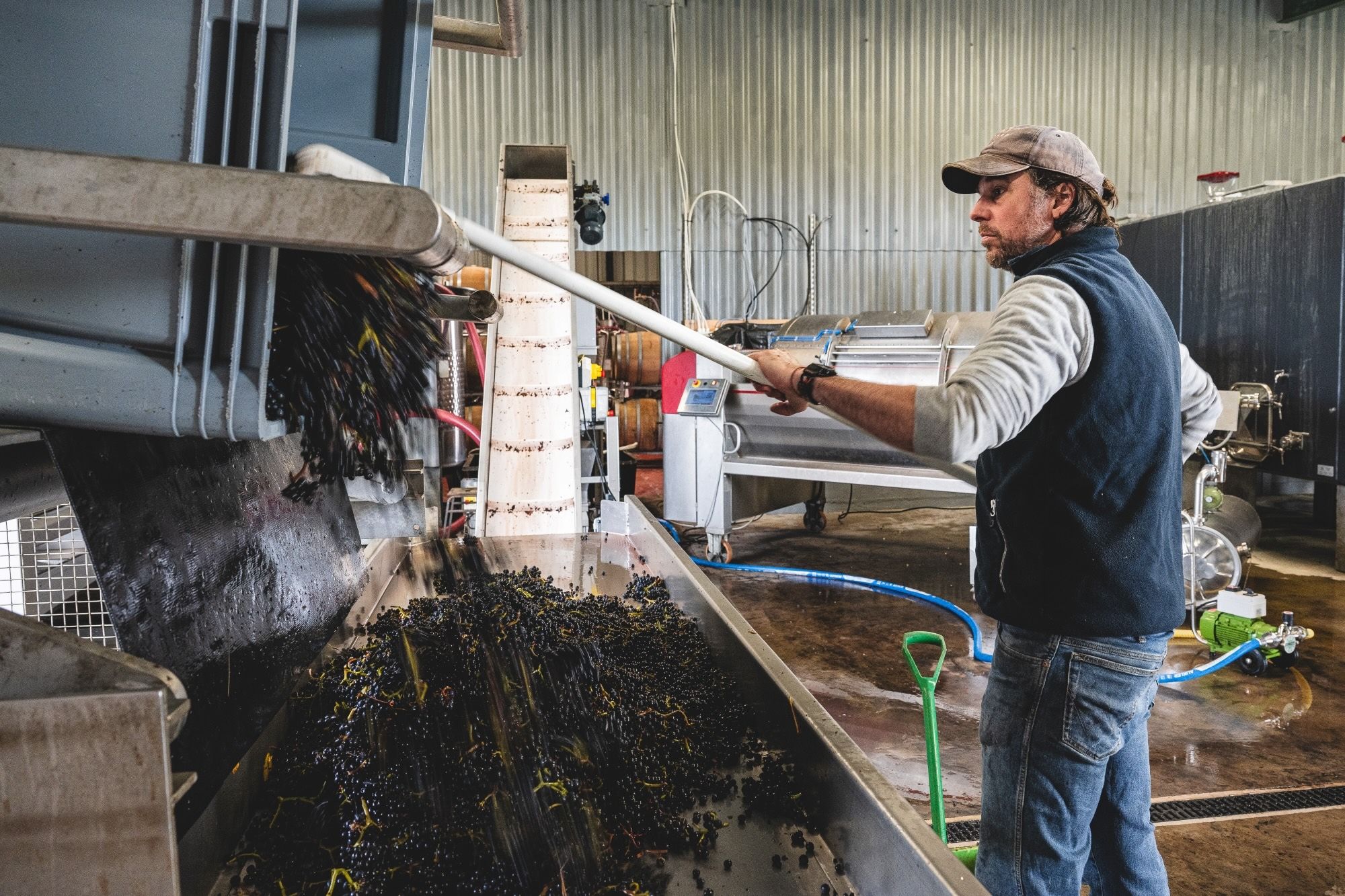Ironically the last thing you need to worry about if you run a national drinks distribution business is the quality of your drinks. Such is the expertise and buying skills available finding the right Sancerre, Verdejo or aged rum for your portfolio is the least of your problems.
Having a drinks list that can meet the needs of virtually every on-trade outlet in the country is a given. That’s what you are supposed to do.
The much bigger challenges come in actually getting those products out to every one of your customers on time, and at a time that they want. After all once a drink is on an operator’s list it is all about managing stocks and having the right amount of products in their outlets as they need.
But it is all the areas of support around managing the drinks side of an operator’s business that the likes of Hallgarten Druitt can potentially make a real difference. At least, quite understandbly, that’s what Andrew Bewes believes.
Be it staff training and development, winemaker and producer dinners, incentives, point of sale or marketing support, that is where a national drinks distributor can potentially make all the difference.
Bewes believes the drinks distribution business is already going through one of its biggest shake-outs in its history, driven largely by how well each of the major players can not just supply their customers, but, it is not too crude a term, service them.
For Bewes, and Hallgarten Druitt, it is all about how much “share of voice” you can get against its competitive set. For ultimately, he says, they are “all doing a very good job” and it is all about those crucial percentage point differences between how each of them operate and the relationships they have with their key customers.
So how do you stand out? Bewes explains: “It is hard as there are few USPs between wine suppliers. We all have a broad range of wines. You have to make one or two percentage points on, say, 10 areas of service.”
Smaller market to fight over
This is becoming a particularly moot point as drinks lists, particularly on the wine side, are shrinking, at a time when there has never been more choice.
Bewes says the biggest challenge facing Hallgarten and all the major national players is simply fewer places on wine lists for their wines.
There may be more restaurants opening up, particularly across the buoyant casual dining sector, but the norm now is to have a list that fits neatly on the back of a double sided food and drinks menu.
It means on-trade drinks buyers have less need for all the wines the major suppliers have on their books. Which is more than a worry, concedes Bewes.
“More restaurant groups are consolidating their wine supply down to one or two operators when it used to be four or five,” he explains.
“We are seeing wine lists being distilled down to 30 to 40 wines. By the time you go through the must stocks, the Pinot Grigios, the Sauvignon Blancs, the Malbecs, there is not a lot of space to play with.”
It means, he adds, there is lot less flexibility and scope to do different and innovative things with customers when the lists are so restrictive. “It has certainly made it tougher.”
Key role
Bewes in the last three years has become one of the important figures in the wine trade. Not just because of his key role at Hallgarten Druitt, but for his willingness to be so frank and open about the challenges that not only does he and Hallgarten face, but the sector as a whole.
There is no smoke screen or carefully crafted PR wizardry with Bewes to deflect from what might be the real picture.
The stakes are currently too high across the wine trade for individual businesses to claim they are somehow impervious to the fractures taking place across the industry
He is only too aware of the difficulties facing him and his peers in steering these mighty national tankers of wine through what are increasingly choppy waters. But crucially he is willing to share them with the media and trade commentators.
He has also seen the trade from a number of different national suppliers having spent time with before joining Hallgarten Druitt with both Liberty Wines (commercial director) and Berkmann Wine Cellars (sales director).
The fall out from the major wine culls over the last 18 months across the major grocers, which must have seen anything between 500 and a 1,000 wine lines taken out of multiple distribution, has hit the national players hard.
He explains: “The market is moving at a pace. We have got used over the last 30 years to seeing multiple specialist names disappear on the high street, but we are now seeing it on the supply side.”
Business overhaul
Throughout his time at Hallgarten, Bewes has been constantly turning the captain’s wheel in his bid to re-position the business for the challenges ahead.
That has primarily meant looking internally at its own systems, procedures, service levels and skills set. This has helped, explains Bewes, the business become a lot more targeted in its approach to the customers it really wants to work with. In a way that makes it both viable and profitable for both sides.
It has seen a number of new faces join the company equipped with the experience and know how needed to help Hallgarten move into faster waters.
“We are just coming out of a major restructuring of the business,” he explains. “For example of our 45 sales staff, 13 have joined in the last 18 months. So it has been a steep learning curve.”
“We have totally revamped our buying process.
With all his competition equally on the look out for the brightest sparks in the industry, finding new talent is not easy, says Bewes. “We all have the same challenge of finding good people.”
He admits he is fortunate to be backed by a family company and does not have to face the scrutiny of financial analysts in the City. But that does not mean he is under any less pressure to perform.
Particularly so in a wine market that has gone through another 12 months of massive change with potentially hugely damaging consequences.
But he believes there is a lot to be learnt from the off-trade, particularly the promotional mechanics and the way the big retailers engage enough with customers to get them to buy different wines, try new styles and just essentially get wine moving through the business.
Drive for independents
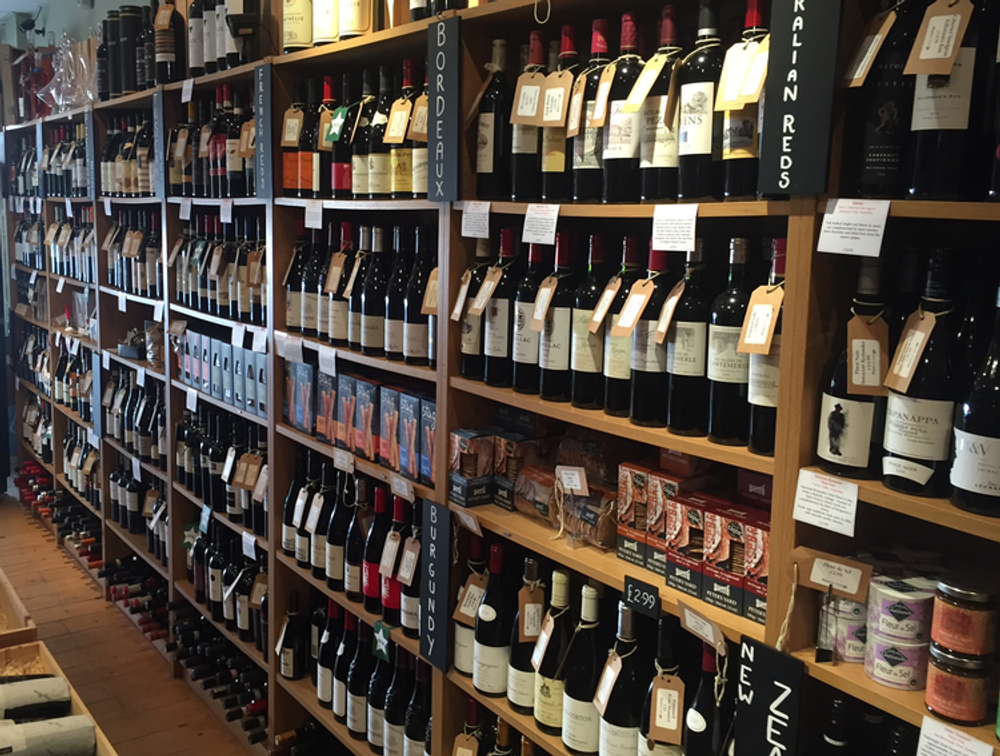
Independents have the diversity of offer that national wine distributors crave
It is why Hallgarten, and its peers, are all so firmly focused on flirting and catching the eye of independent wine merchants.
They have long been the apple of the eye of many a supplier and wine producer, but they have become even more attractive now the big supermarket chains have chosen to go and make hay with a select few suppliers and their wines. They also have the capacity to move wine quicker than the average restaurant.
Independents are vital for businesses like Hallgarten, says Bewes, because they are always on the look out for new wines and the next best thing.
“Independents actively like diversity,” he says. “That is why they are so important and we are investing so much in them. We have a whole support programme for independents, like, for example, their own dedicated wine list.”
All down to training and support
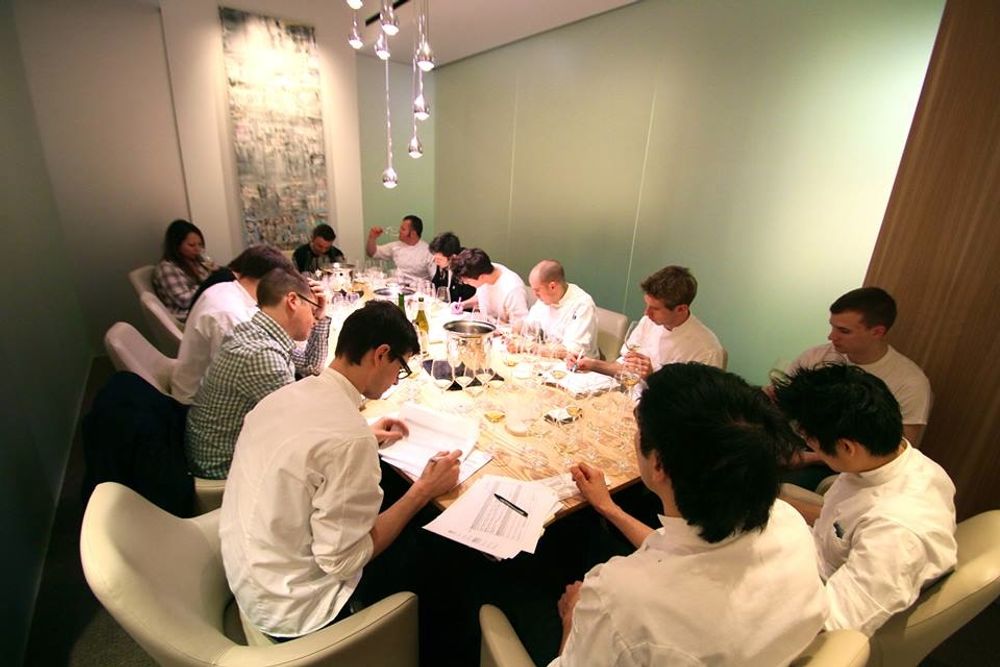
Staff training is now as important as the drinks they can offer for businesses like Hallgarten
Training and support have become the two key corner stones for his Hallgarten turnaround strategy.
“We have spent the last two years trying to look at the business through a fresh pair of eyes and find ways to re-invent ourselves. But our number one focus is to concentrate on what our customers want and not what is easiest for us to do,” he says.
That has meant learning how to look at their own business from the outside in. What is it about Hallgarten that a local pub, or a Michelin-starred restaurant might want to work with?
Bewes has the answer: “Training, education and support are where you can have a point of difference. If you can give people confidence through training to up sell a bottle of wine it is as important as the bottle of wine itself.”
It is why Beverley Tabbron MW was moved from her key buying role to head up Hallgarten’s relaunched training and education programme, centred around its own Wine Sure training programme.
Hallgarten now employs three WSET-certified trainers and offers bespoke, tailored wine training for all its customers.
“We have to tailor make our training programmes to the individual environments of our trading partners,” says Bewes.
“We have to give their staff the confidence to sell wine. How do we make it easier for them.”
He adds: “We have to be able to engage with the whole industry from sommeliers to bar staff.”
Technology driven
It is also now able to offer online ordering to its customers. Bewes admits it has been a significant weakness versus its competition and one he was determined to get right.
Technology, he adds, needs to become more of a major driver across its entire business.
Particularly the rise in ecommerce and mobile, where the expectations from customers are a mile away from where they were just five years ago, says Bewes.
Equally the ability to give members of its sales force real time information about stocks and availability out in the field offers will transform the way they work and the service they can offer their customers.
But again Bewes stresses it needs to communicate with its customers in a way they want. “We have to be careful about how we use technology and communicate with our customers in a digital world. For many customers email is still very important. Whether it is online, by text, by phone, or by face, we need to be able to offer them all opportunities.”
The future
Bewes is typically frank about the future, both for Hallgarten and the trade as a whole.
He expects there to be further consolidation within the wine supply and distribution base. This will only mean a “greater polarisation” between the big companies at the top and the rest of the industry.
He admits he has “watched with interest” the steps being taken by some of his competitors, most particularly when Enotria widened its offer this year in to spirits with what he sees as the very astute acquisition of Coe Vintners.
But Bewes sees Hallgarten’s future as being firmly seen as a wine supplier, backed by industry leading training and support.
Whilst not completely ruling out future acquisitions, he also sees Hallgarten growing organically rather than going down any collaboration, or Bibendum and PLB route.
Again its independent, family-owned, strong cash position puts it in a good place to build for the future.
Finally Bewes throws down a gauntlet to all wine suppliers and distributors.
“The challenge we all face is how do we get exciting wine to sell on a wine list. How do we keep it alive and interesting and not just become homogenised. That is where we all need to focus our efforts.”
- This is an extended version of the interview I carried out with Andrew Bewes, managing director of national wine distributor, Hallgarten Druitt, for Grapevine – the fortnightly review of the wine trade I produce for the London Wine Fair.
